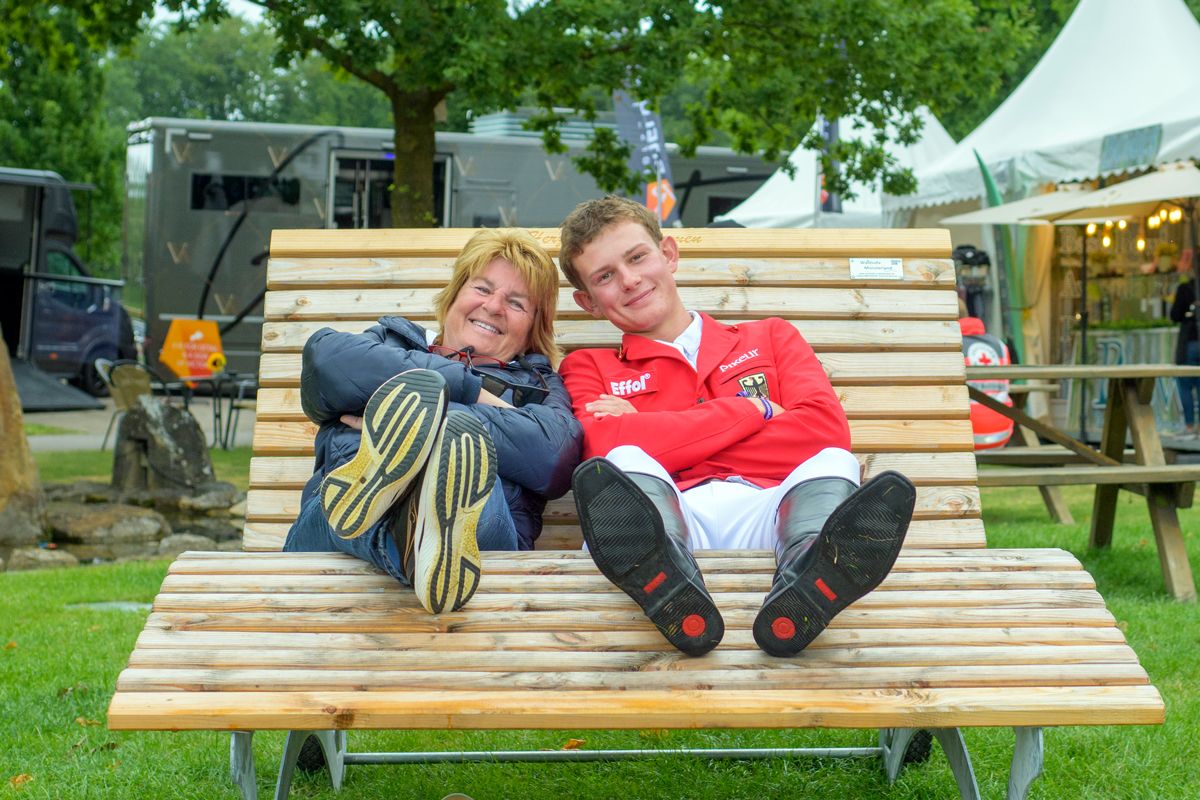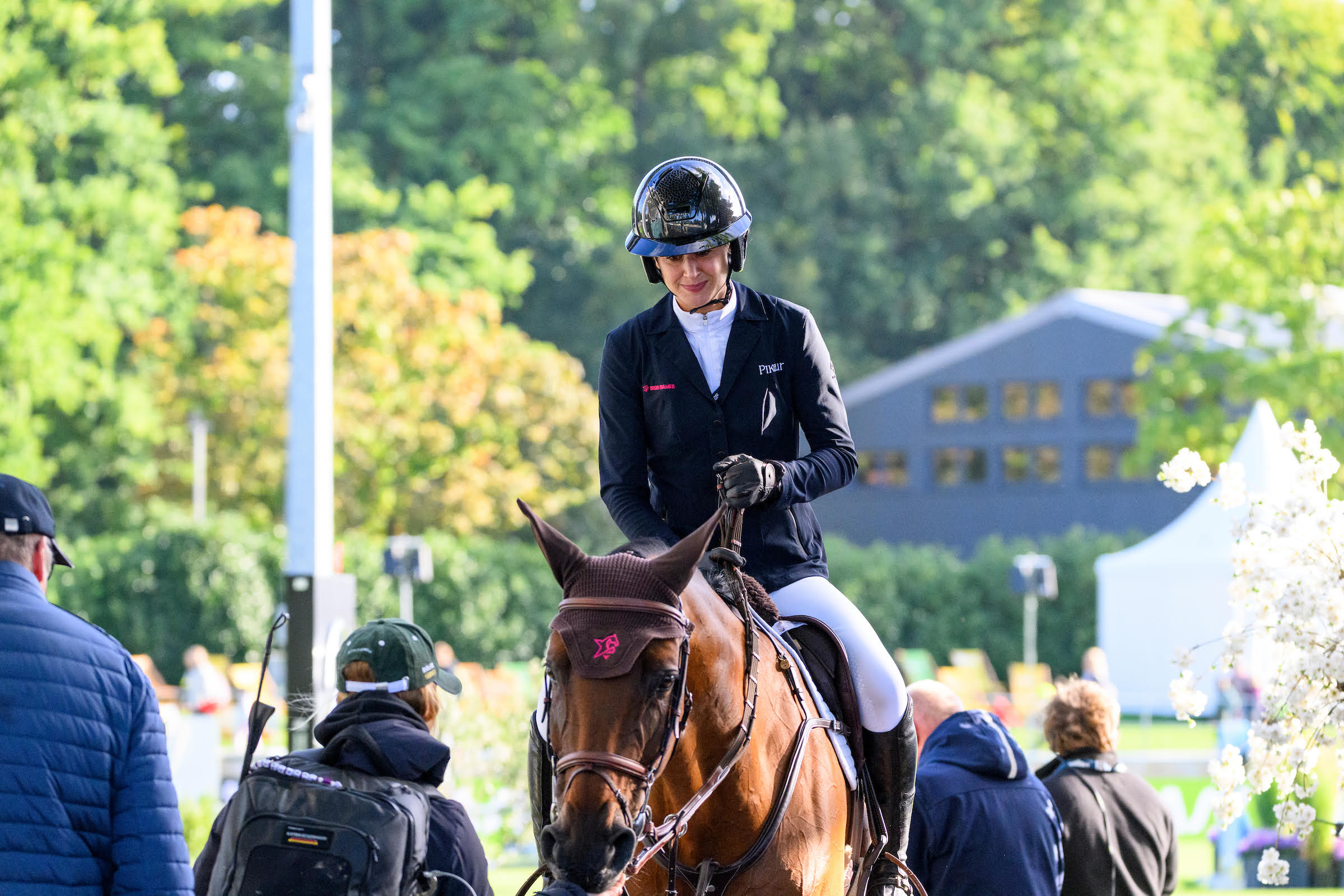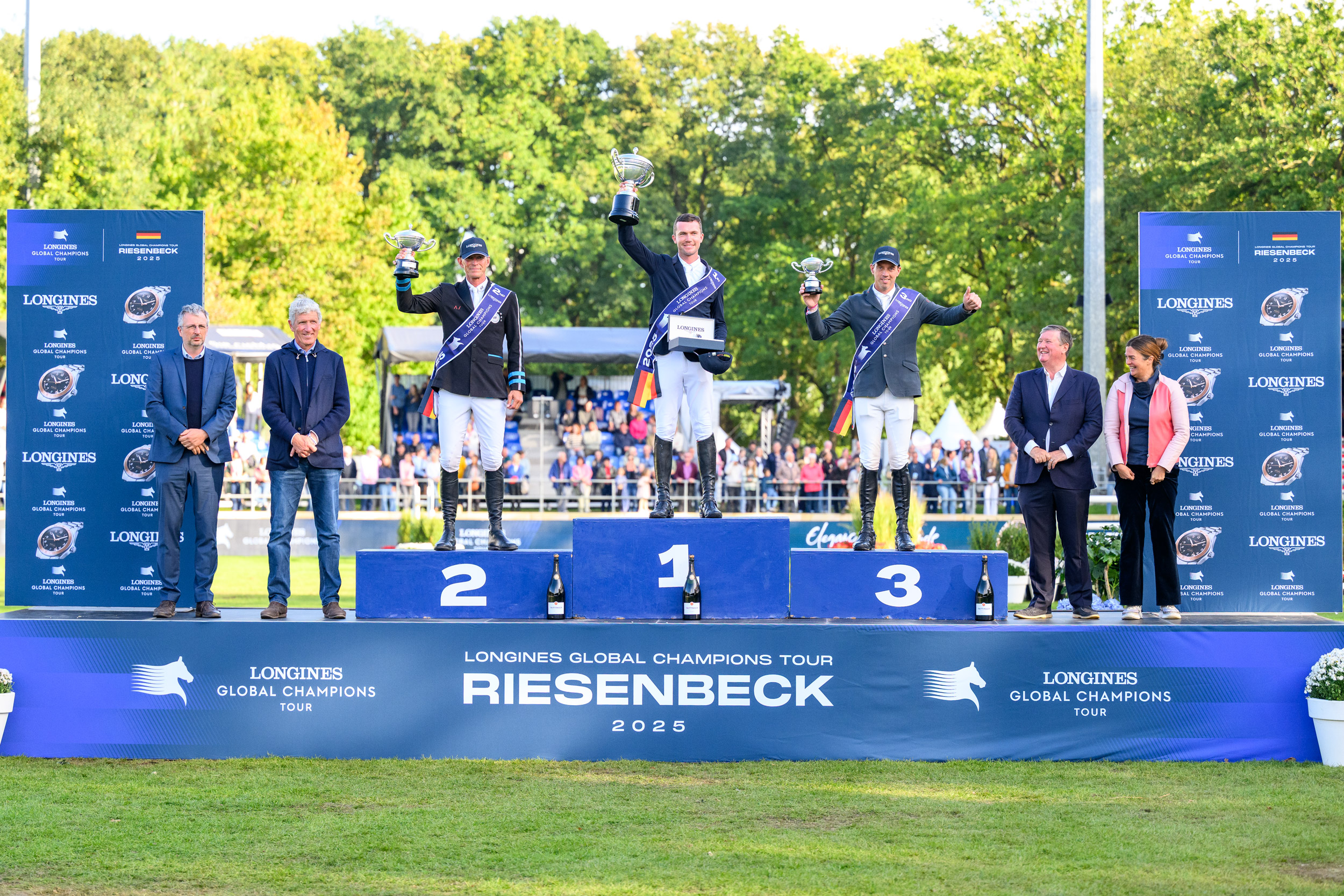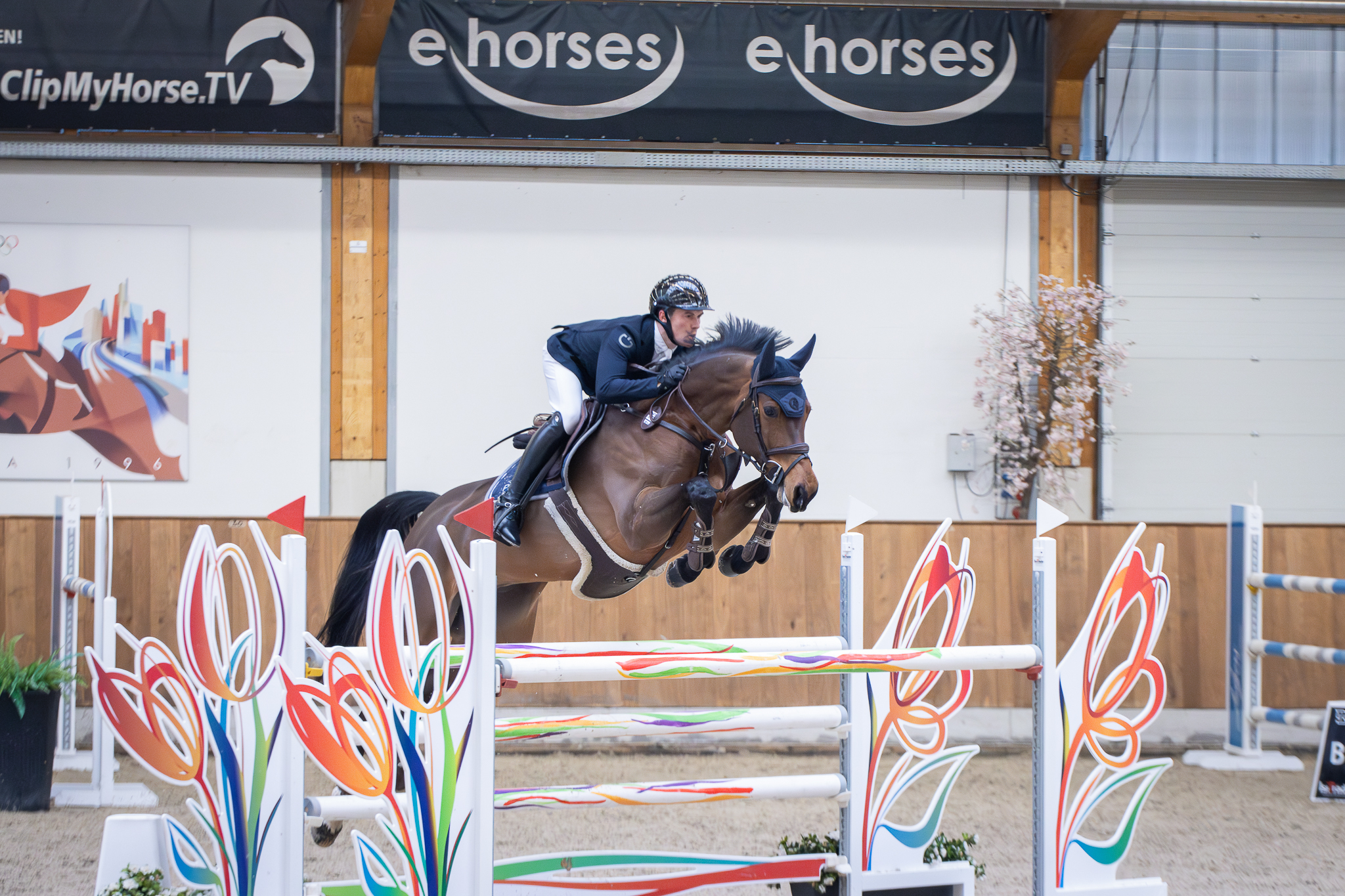“There are no highs in this sport”
It is his fifth time in Riesenbeck and fifth time wearing the red jacket of the German team at a European Championship — at just 17 years old Tony Stormanns from Weisweiler is already an “old hand” in the youth show jumping scene. The son of internationally successful showjumper Helena Stormanns has just won the final of the NetAachen Prize at the CHIO Aachen. By then his European Championship mount, Donjon D’asschaut, was already on his way to Riesenbeck. However, show planning, effective time management, and professional organisation are no hurdles for the mother-son duo of Helen and Tony Stormanns. After years of competing at the top of the sport, a skiing accident forced Helena to abandon her successful career as a professional rider and focus entirely on coaching. Professionals like Jessica Springsteen, William Whitaker, Emil Hallundbaek, and Nina Mallevaey benefit from her knowledge. Even her youngest son Tony has much yet to learn from his mother, as we discovered in an interview with the pair.
What was your first thought when you heard about the nomination for the Europeans?
Helena: I was very happy because we work towards this every year. For me, championship experience is very important; I have participated in the Europeans for ponies, juniors, and young riders myself. Experiencing that pressure, having to deal with it, and occasionally losing — this builds tremendous strength and is all part of the training process.
How did you prepare for the EM?
Helena: Tony was lucky to have two horses to choose from. Together with the national coach, we decided on Donjon D’asschaut. So, Tony rode Surprise in Aachen. We had to juggle the two events, but it’s hard to pass up a start in Aachen.
For Tony, it might even have been an advantage to be busy in Aachen instead of thinking about the Europeans at home?
Tony: I didn’t really worry about whether I had to be in Aachen or Riesenbeck; it wasn’t easy to have one horse there and another one here, but it worked out well. I mostly start to worry after I've walked the course.
Helena (winking): He is also quite relaxed…
Tony: Yes, Mom puts the pedal to the metal with me!
Riesenbeck is your fifth championship. Is it a little easier each time, or does the pressure grow with the increasing expectations?
Tony: I’ve only had a problem with high pressure once, and that was at the European Championship in Oliva (Editor's note: Tony won gold in both the individual and team event for U14 riders), but I also gained a lot of valuable experiences from that which I hope will last a long time. Of course, I am excited and a little nervous because I want to perform well and not disappoint my team. It is always an honour to represent Germany at the European Championships, whether it’s the first time or the fifth time.
How do you stay so calm and focused? Do you have a specific ritual before your performance?
Tony (laughing): I’ve been here for three days now and have probably polished my boots five times already.
Is that your special quirk?
Tony: No, I don’t have a ritual as such. I always make sure to take my horse out before the competition to ensure they feel good. Of course, the horses are never the same, just like people are not. I don't do things like readjusting the saddle one more time or tying my tie a specific way.
Tell us about your horse Donjon D’asschaut?
Tony: Donjon came to us through Michael Duffy, who said, “I have a horse in the stable, that you should ride.” Donjon is a good soldier, but not just any soldier standing in line; he is very special. He has a lot of talent, a big heart, and a very long stride. He could also complete the course with an U14 rider. He is pretty much the perfect horse for the sport and has fortunately been a part of the Stormanns team for a little over a year now.
From a trainer's perspective, are the two a good match?
Helena: Definitely. As Tony said, Donjon D’asschaut is a very large horse with a big canter, which is often not practical for younger riders with less experience. But the two quickly matched up. Tony has always been riding many different horses, partly because we sometimes sell a horse. That obviously helps him bond with a horse more quickly. Still, he was able to develop a good connection with Donjon quite rapidly.
Is that one of Tony's strengths to quickly adapt to a new horse?
Helena: I believe it comes from his riding style; he likes hot horses. Donjon D’asschaut is big, but he has a lot of blood and is sensitive. Tony doesn’t like horses that are a bit dead on the leg; he prefers something "excitable." That’s why the two fit together quite well.
Did he inherit this preference from you?
Helena: I also preferred to ride blood horses in the past, so it might indeed be in his genes. Tony is capable of quickly identifying the sensitive spots of a horse. Hot horses can get nervous quickly and can be a bit touchy. He manages to mask that very well and finds a good friendship with the horses. I believe his riding style fits well with these types.
What do you do in daily training?
Helena (laughing): I yell a lot.
Tony: I must honestly admit that Mom has never yelled; that was always Dad’s job. Mom would always get the megaphone from the office.
Helena: I usually don’t say anything for a long time but let him try to figure things out on his own first. In the end, he is alone with his horse in the course. However, if I see that he is on the wrong path, then I’ll jump in quickly and say, “Watch out, what you're thinking now is totally wrong, take this approach, and it will work.” Then he knows that I’m just trying to help him get an answer more quickly.
How proud is one as a mother that your son is continuing his show jumping career so successfully?
Helena: I am very proud of that, but ultimately he has to want it himself, and I believe we are now at the point where he is consciously searching for knowledge. He has of course heard many stories from the past over the years, but now he is making his own experiences. For example, he previously helped for a week as a groom for Christian Kukuk — there was not much riding involved, it was more about saddling, grooming, and just working — and more recently Franke Sloothaak gave him some dressage lessons. These are singular and formative experiences. He is now at an age where he can implement all that.
Is there a specific piece of advice that you always give him?
Helena: Work, work, work; there’s no sudden rise in this sport. After a high, after a great success, it’s about getting up the next morning and working again, or the success won't last. I always say, “You are only as good as your next jump, not the last one. The last one is already over.”





